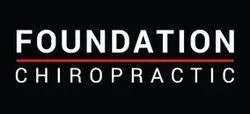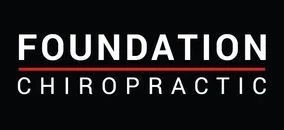Concussion and Depression
- posted: Jul. 23, 2020
In continuance on our series of articles pertaining to brain health and concussions we will be learning how getting a concussion can lead to depression. A concussion also known as a Traumatic Brain Injury (TBI) can occur in a few different ways. The first and most obvious one that everyone thinks of is getting physically hit on the head either from an object or someone else and losing consciousness. This doesn’t occur very frequently, according to the CDC Heads Up- losing consciousness occurs only 10% of the time. The other 90% of the time the person doesn’t lose consciousness.
A concussion can also occur not from a blunt object to the head, but from a rapid acceleration and deceleration. This why those who have been in a whiplash injury such as a car collision or something as simple as a fall can still have a concussion even if they never hit their head on anything. A good visualization of this rapid acceleration and deceleration is shaking a tomato in a jar of water around.
If you think of your brain as a tomato and your skull as a jar that it sits inside surrounded by water (or, in this case, Cerebrospinal Fluid) and you shake this tomato around in the jar the tomato will hit the sides, just like the brain will hit the sides of the skull. This hitting is what causes the concussion or traumatic brain injury. The mechanism for this is known as Coup and Contrecoup. Coup is when the brain hits towards the side of the skull the force is pushing towards and Contrecoup is when the brain hits the opposite side of the skull. This double impact can and usually does cause injury to the brain.
Those who suffer or have suffered from concussions in the past know that being concussed can be debilitating. Athletes are pulled out of the game in order to heal which can cause feelings of depression. Being unable to work, study or even drive can have a detrimental effect on your life as well leading to depression. Students may find it takes longer to study or take tests and adults may notice that it also takes longer to do their everyday job. More and more we’re learning that mood issues are not due to chemical imbalances in the brain, they’re caused by inflammation.
According to Jorge et al from the Archives of General Psychiatry, research showed after TBI major depression was observed in 33% of patients2.
Another article published by Bryant et al from the American Journal of Psychiatry that 12 months post TBI 22% developed a psychiatric disorder they had never experienced before3. The strength of the neck has everything to do with the severity of TBIs and post concussive symptoms.
Specific Structural Chiropractic correction may help improve the brain body connection. Structural Chiropractic is a way to evaluate how well the Central Nervous System is functioning in one’s body. If the nerves going from the brain to the body and vice versa are not working correctly there will be dis-ease. After a TBI inability to communicate between the brain and body can cause frustration and inability to function to your optimal potential. However, if there are misalignments in the vertebral column specifically in the upper neck, closest to the area of the brain and brainstem that directly connect and affect how the body is functioning, then adjusting those misaligned vertebra back to where they should be will help the brain and body to begin to communicate and heal and restore the body back to a more natural and healthy state.
References:
- CDC Heads Up Concussion Protocol
- Jorge et al. Archives of General Psychiatry. 2004 Jan; 61(1):42-50.
- Bryant et al. American Journal of Psychiatry. 2010 Mar; 167(3):312-20.
Our Location
Foundation Chiropractic
1118 Outlet Collection Way #101
Auburn, WA 98001

